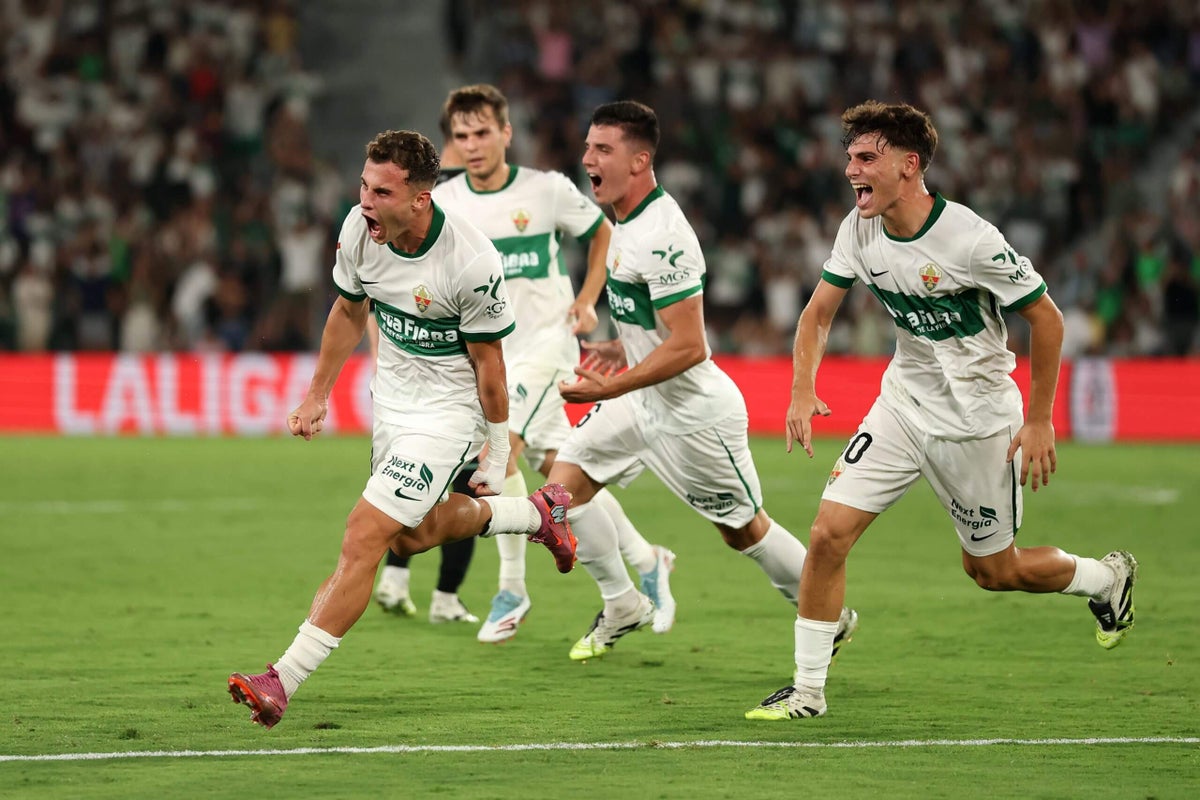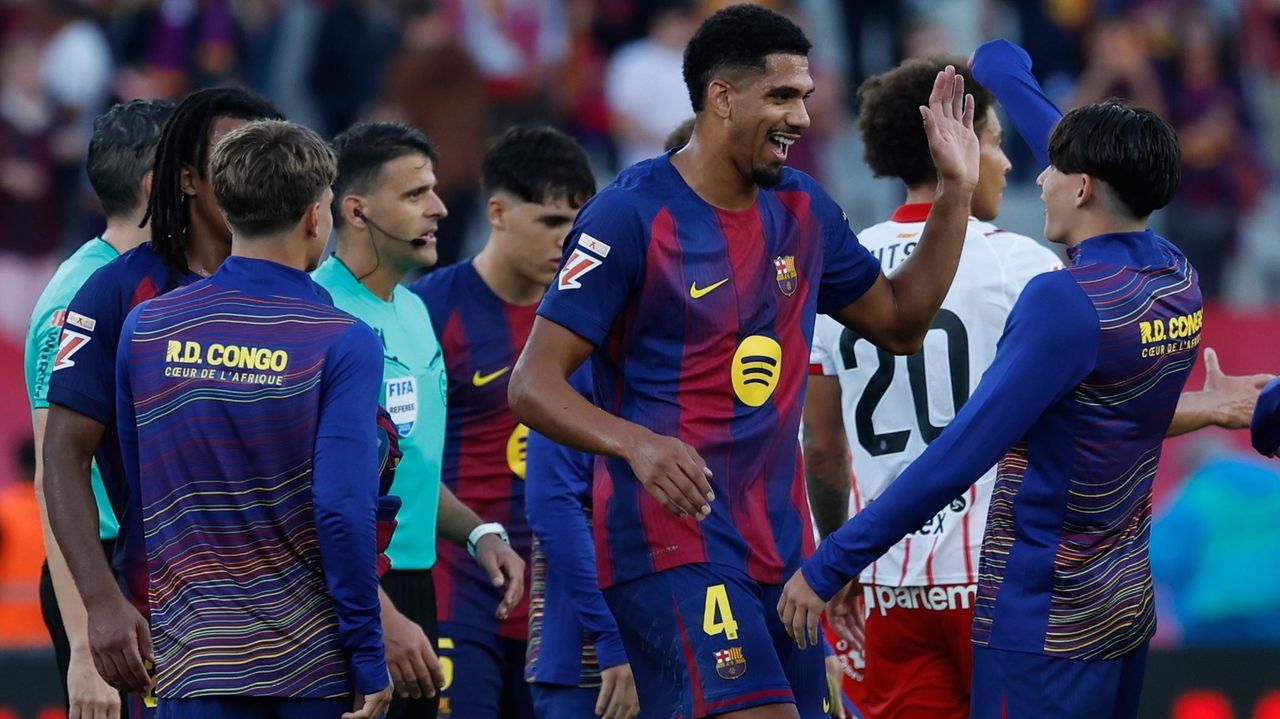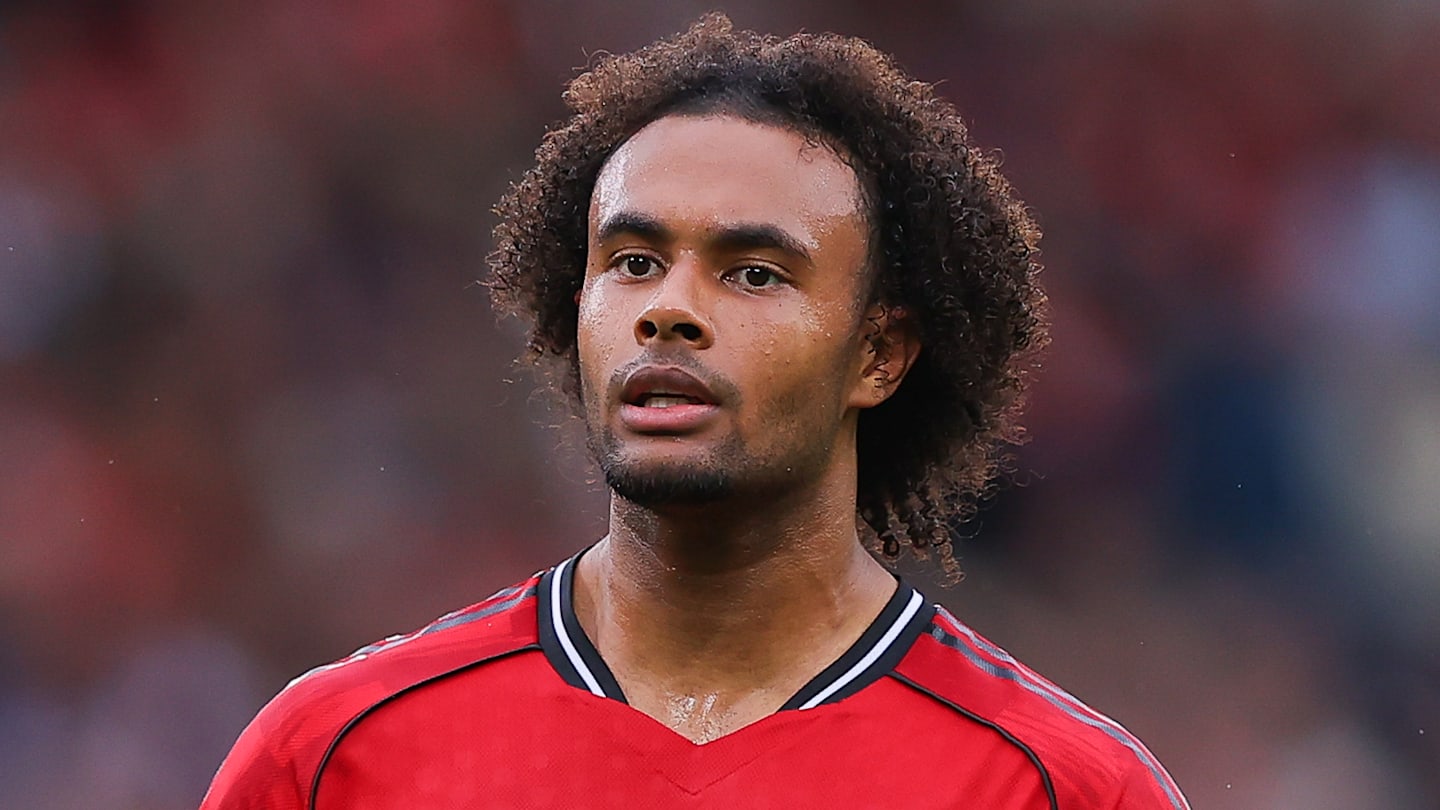The last time Elche were a top-flight side, they were flirting with unwanted records.
Back in 2022-23 — their centenary year — they finished 12 points adrift at the bottom of the table, cycled through six different managers, and went 19 games without a win to get the season underway. Only two teams have ever made a worse start.
But two years away from the limelight looks to have done Elche good, with a rebuilt squad and new approach under coach Eder Sarabia. He has taken them back to the top tier with a distinct brand of possession football, and it was only defeat to Alaves before the international break that prevented them from becoming the first newly promoted side in Spanish top-flight history to go unbeaten in their opening eight games.
It is an eye-catching improvement, but there is more to Elche’s fast start than simply results. Their style — pass-heavy, but fast-paced and free-spirited — has captured the imagination in Spain.
The following sequence of play from their 1-0 win against Real Oviedo quickly went viral. It features four shots on goal, two outrageous turns and an audacious back-heel flick, illustrating the technical quality at the heart of their exciting way of playing.
🍾 Este minuto del Elche Club de Fútbol es oro en paño. pic.twitter.com/qSbwHVhWFZ
— Lorenzo Gelardo (@LorenzoGelardo_) September 21, 2025
Those familiar with coach Sarabia’s path will not be surprised to see his Elche side dominate the ball. Assistant to Quique Setien at Las Palmas, Real Betis and Barcelona, his first managerial job saw him take the Gerard Pique-owned FC Andorra into the second tier for the first time in their history, where they finished seventh and ended the season with more possession (66.6 per cent) than any other side.
But few could have foreseen just how seamlessly his team have adapted to the step up in quality. Supplemented with high-quality additions, with a focus on players who can deal with the manager’s unique demands, it has helped Elche to become La Liga’s entertainers.
Eder Sarabia has crafted Elche into an exciting unit (Ion Alcoba Beitia/Getty Images)
As with most modern sides, build-up starts from the back.
Elche have, unusually, rotated their two goalkeepers throughout the season so far, but between them, 38-year-old Matias Dituro and Barcelona loanee Inaki Pena have completed 86 short passes so far this season, almost double that of any other La Liga side.
Alaves posed their greatest challenge of the season, an aggressive, high-pressing side who chased Elche up the pitch in blustering conditions.
Sarabia’s side eventually collapsed under the weight of set-pieces and hard-hitting counter-attacks, but there were a handful of incisive moves that demonstrated how they can pop the ball around the high press and move forward with purpose.

That said, Elche prefer to establish themselves further up the pitch. Three towering centre-halves step up to the halfway line and the wing-backs push high, while a dynamic, technically gifted midfield trio are constantly on the move — swapping positions, drifting into pockets of space, and demanding the ball to be fizzed into them between the lines.
Their 2-0 win against fellow promoted side Levante showed them at their dominant best, flying out of the blocks and keeping 94.2 per cent of the ball throughout the opening 20 minutes, restricting their visitors to just five completed passes in that time.
Centre-back David Affengruber is the lynchpin, a strong defensive sweeper with unerring confidence on the ball.
No player completed more line-breaking passes than the 24-year-old in the Spanish second tier last season, defined by SkillCorner as passes that progress the ball through, over or around organised defensive shapes. As we can see from the visualisation below, he is not afraid to strike through the heart of the opposition and find team-mates in congested, central areas of the pitch.

Affengruber is not the only cultured defender in the squad — former Real Madrid academy graduate Victor Chust, on loan from Cadiz, is establishing a passing pipeline down the right of the Elche side, while Pedro Bigas is a bustling presence down the opposite flank, adventurous with the ball and no-nonsense without it.
But it is the young Austrian Affengruber who Elche often look towards to pick the lock, as he did with this pass over the top of Levante’s defence and into the path of Rodrigo Mendoza for a close-range shot.

Here he is in the closing stages of a 1-1 draw with Real Betis, wrapping the ball into Mendoza once more to get his side moving in search of a winner.

Possession-heavy football is nothing new to La Liga, but it is the variety of their approach play — always sharp, purposeful, without fear — that makes Elche so good to watch.
Sarabia wants his team to create overloads and build up with rehearsed patterns, but gives his players freedom to move into spaces and encourages them to interpret the game for themselves.
Here is another slick passage of play from that defeat to Alaves to illustrate that improvisation, where we can see No 8 Marc Aguado — who played under Sarabia at Andorra — directing the traffic from midfield. With the opposition committing players forward, we can see him calling for a wide player t0 drop in to help his team keep a numerical advantage.
Affengruber waits for the striker to make his move before popping the ball to Aguado, who quickly finds team-mate Aleix Febas further ahead.
What follows is typical of Febas, a sharp turn and scampering run up the pitch to find wing-back German Valera.
With two sharp passes and a moment of individual quality, five pressing players are taken out of the game.

Midfield is where things really get exciting. It was Martim Neto who spun away from two players in that clip against Oviedo earlier on, while Mendoza enjoyed a fine campaign with Spain at the Under-20 World Cup before they were eliminated by Colombia at the quarter-finals.
But Febas has been the real surprise, a fleet-footed midfielder who throws himself into danger to receive the ball, with an uncanny ability to wriggle away.

Febas, wriggling away from another challenge (Clive Brunskill/Getty Images)
Data from SkillCorner helps to quantify that press resistance. Only Barcelona midfielder Pedri has been subject to more high pressures from opposing players across Europe’s top five leagues this season, maintaining a strong ball retention rate, as shown below.
Such assurance and nerveless control of the ball gives Elche an option to attack through the middle. And, though it is fraught with risk, it is a route they often look to take.

Careful squad planning and smart recruitment have also afforded the manager options to rotate based on their opponents, allowing them to switch their approach play and find alternative routes to goal.
Across the two centre-forward roles, 6ft4in (193cm) former Real Madrid striker Alvaro Rodriguez offers aerial dominance and back-to-goal play, while Rafa Mir is a more mobile option.
Meanwhile, 53-time Portugal international Andre Silva, who scored 28 Bundesliga goals for Eintracht Frankfurt in 2020-21, brings neat link-up when he drifts to the left, along with a striker’s instinct around the penalty box.
At wing-back, too, Elche can cycle between various profiles — Alvaro Nunez is the more defensive option down the right, Valera is a converted midfielder who can tuck inside to help with ball progression through the middle, while Josan offers a bit of everything. All three possess the quick feet and sense of adventure that Sarabia requires.
Their opening goal against Celta Vigo last month shows these principals in action, with goalkeeper Dituro stepping up to the halfway line to help maintain that numerical advantage against the first line of defence.
On this occasion, the ‘keeper goes long and finds a pinpoint pass into the onrushing Josan, who has made a run behind Celta’s wing-back Hugo Alvarez, caught slightly up the pitch after Elche invite pressure.
With a perfect touch on his chest and a dart to the byline, he picks out Silva in the box to tap home.

The underlying numbers suggest not to get carried away in terms of pushing for European football just yet. Their expected goal difference (xGD) places them firmly in mid-table, an indicator of the quality of chances teams are creating and conceding.
But as a viewing experience — the quick passing sequences, daring approach play, and the flicks, tricks and triangles against some of Europe’s strongest sides — there are not many more entertaining sides to watch right now.


